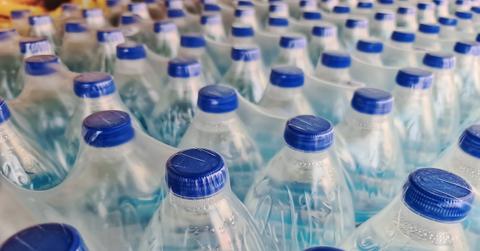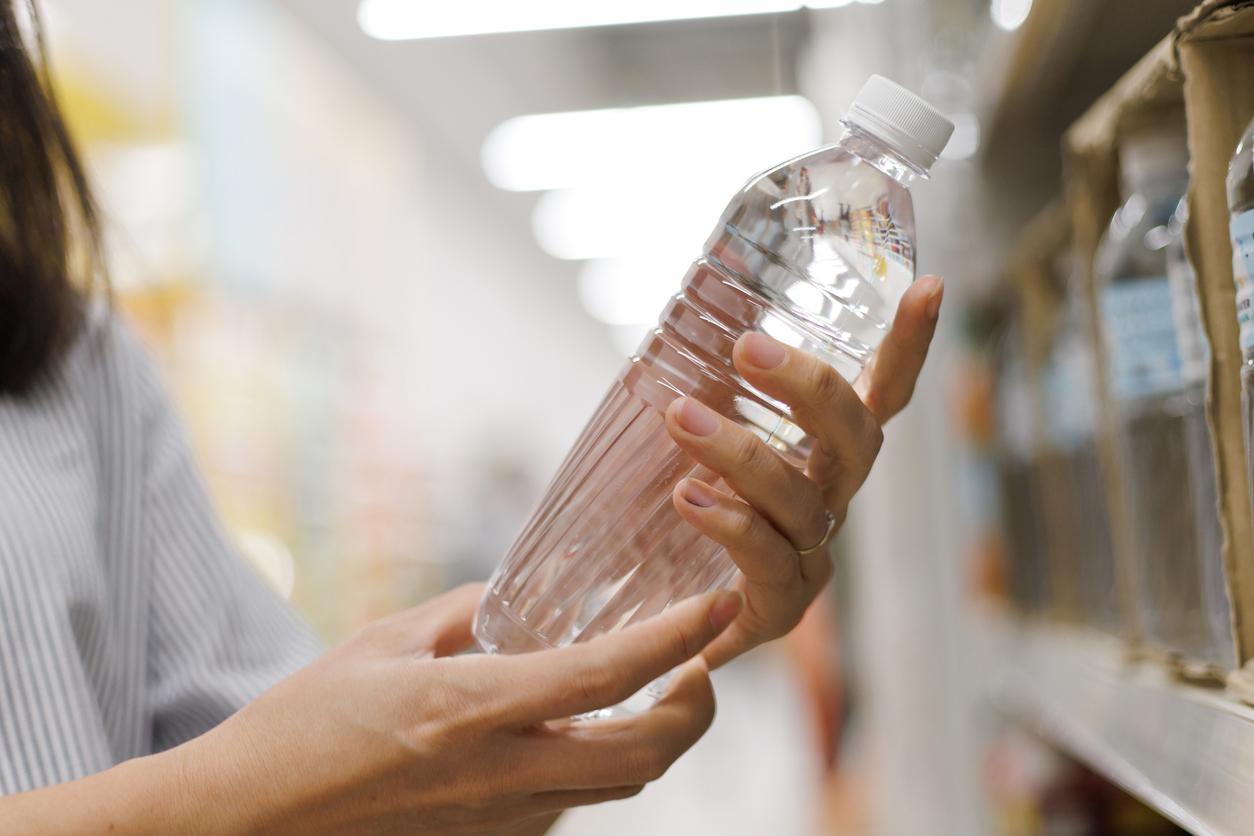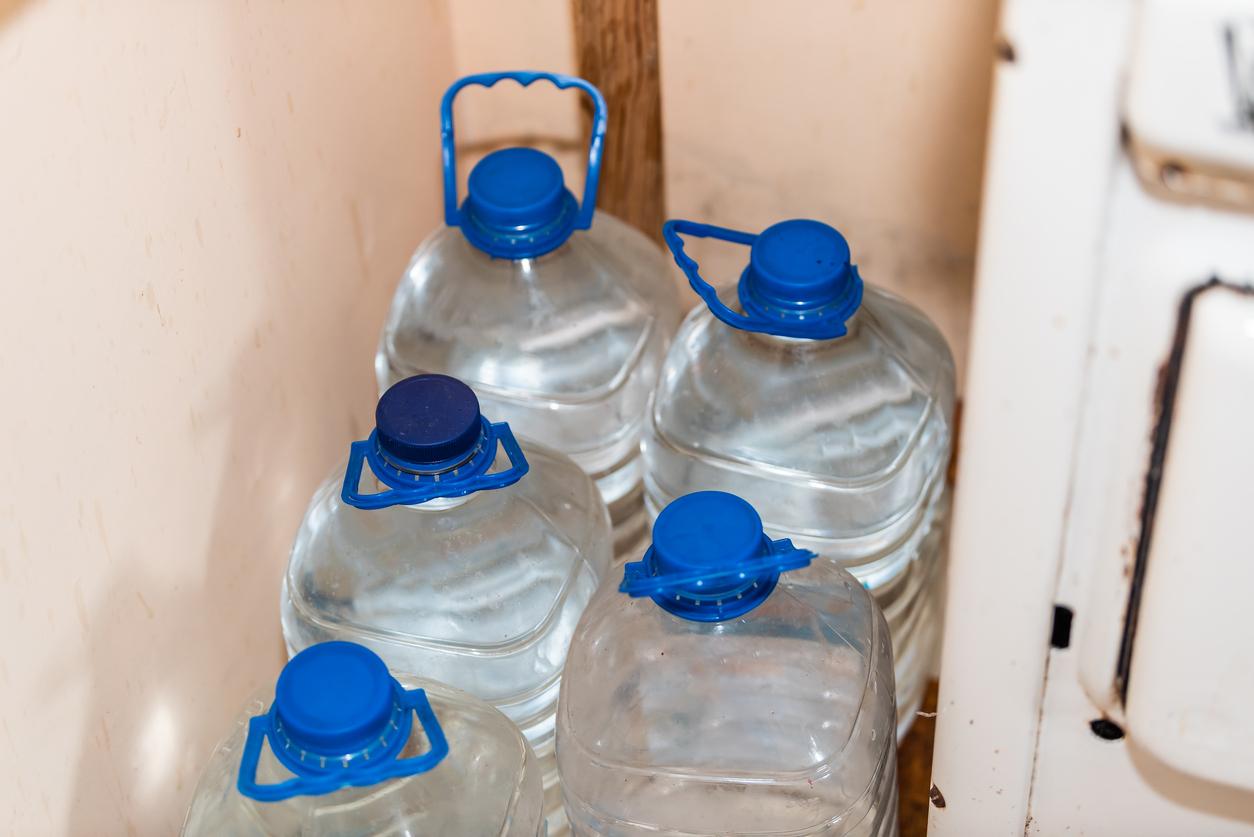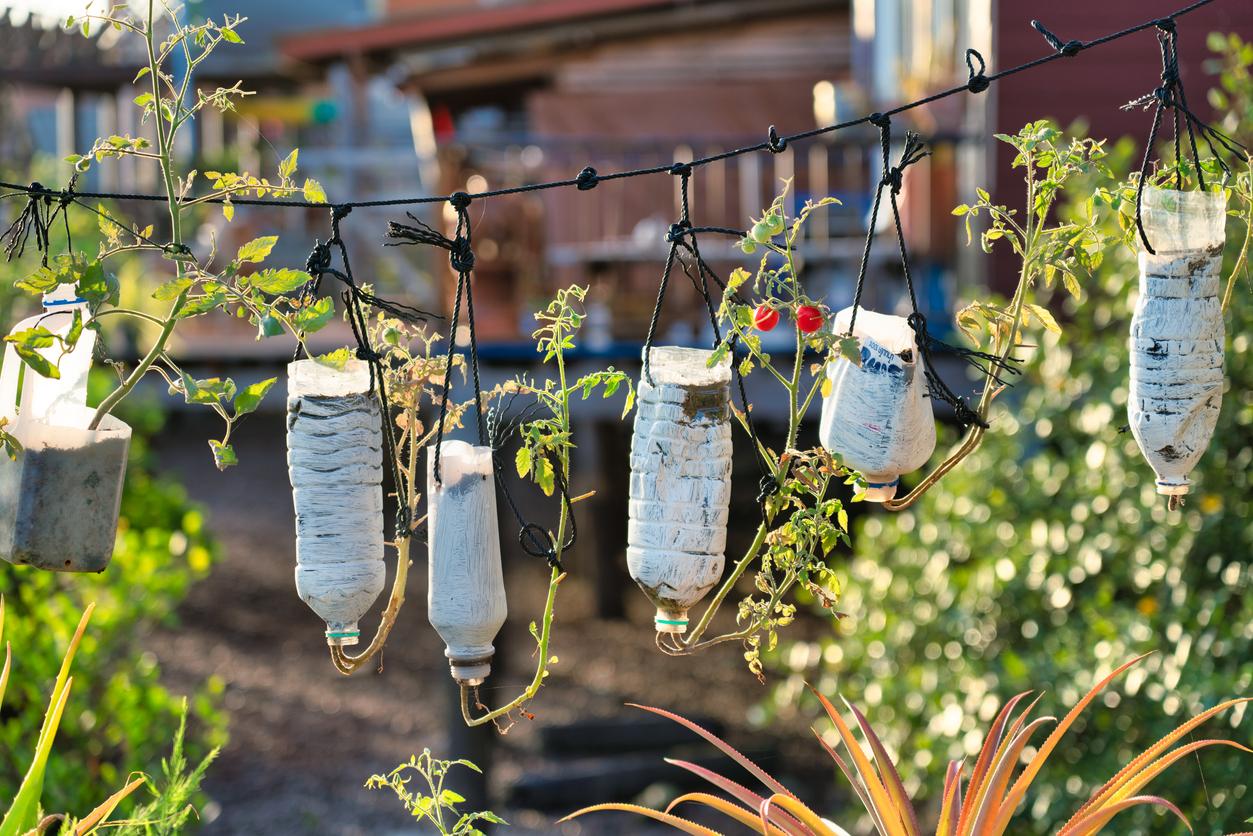Does Bottled Water Go Bad or Expire? Here’s Everything You Need to Know
Most states recommend that every household has a few gallons of water (or more) stored in order to be prepared for emergencies.
Updated April 25 2024, 3:03 p.m. ET

Avoiding plastic water bottles is one of the first steps to living sustainably, but sometimes it's the only option. In certain emergencies, it’s possible that refilling a reusable water bottle might not be safe if you don't have access to filtered water.
Storing water at home is a great way to stay prepared and even recommended by the Centers for Disease Control and Prevention (CDC) — but does bottled water go bad? To learn how to store water properly and how long it’s safe to drink, keep reading.
Does bottled water go bad or expire?

When properly stored, water doesn’t go bad or expire. Despite some companies printing expiration dates on the bottles, bottled water is expected to last indefinitely, according to Food Safety, a resource by the U.S. government.
In most cases, an expiration date indicates how the type of packaging used can affect the water inside, according to Business Insider. After a certain amount of time passes, perhaps as short as three months or as long as two years, the chemicals associated with the packaging can begin leaching into the water, changing its taste and potential health impacts.
These types of negative outcomes are often the result of storing water improperly. To safely store bottled water for a long period, it’s important to follow specific steps and guidelines.
How long does bottled water last?

As stated earlier, bottled water doesn’t have an exact shelf life, meaning it can last indefinitely. To make your bottled water last as long as possible, stick to these general rules created by the CDC:
- Keep the water in a cool place (between 50 and 70 degrees Fahrenheit).
- Make sure the bottles stay out of the sun.
- Don’t store the water near toxic substances.
Labeling the water, including the date of storage, is also helpful. Ideally, you should replace your stored water every six months — this helps maintain freshness and taste. A two-week supply of a gallon of water for each person daily is recommended, but if you have a pet or live in a hot region, it’s best to store extra.
What to do with bottled water that’s gone bad:

If you suspect that your water has gone bad or been contaminated, it’s probably not a good idea to drink it. That doesn’t mean that all hope is lost, though.
While it makes sense to consider using the water for something else — to ensure it doesn’t go to waste — certain alternatives should be avoided. For example, you don’t want to use water that’s gone bad in your garden or give it to your pet to drink. The same contaminants and microplastics that could harm you are also bad for your garden and pet.
According to the Environmental Protection Agency (EPA), boiling water technically removes some contaminants, but it is unable to remove all chemicals, heavy metals, or salts. When it comes to human (or pet) consumption, it’s always better to be safe than sorry.
Overall, it’s best to discard the water and use the leftover bottle. Recycling or repurposing plastic bottles is a great way to prioritize the planet. You can transform them into hanging planters, watering cans, or miniature greenhouses—you could even use the plastic to make various arts and crafts.